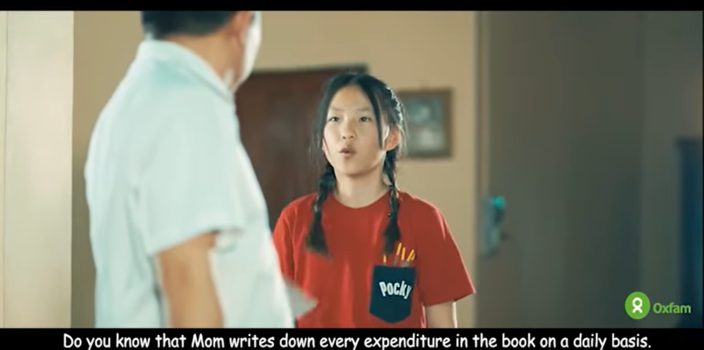The Covid-19 pandemic has had an immense impact on how organizations and institutions now operate, and the development sector is no exception. For many, the aid of technology has been crucial to maintaining productivity and connectedness during the pandemic. Online communications platforms such as Zoom, have presented numerous opportunities for civil society to progress discussions on issues, such as Human Rights to the digital landscape, despite restrictions on movement and assembly. Organizations such as UN Women, Plan International, Save the Children, and many others have adapted their advocacy and campaigning strategies from the physical to the digital; utilizing social media and other communication platforms as the primary medium to address their audiences and engage with policymakers.
Covid-19 Response
Although Laos has an effective system in place to respond to epidemics, the government’s mandate to raise awareness on Covid-19 and protective measures has benefited from the support of civil society organizations. Risk Communications Clusters facilitated by the WHO, and supported by organizations such as Oxfam and the Swiss Red Cross, have aided local authorities to produce communications material targeted towards specific marginalized and vulnerable groups and the general public.
Harnessing Social Media to Advocate for Equality
Across the world, the Covid-19 crisis has had significant negative impacts on marginalized and vulnerable groups, particularly women and girls. As nearly half of the world’s population confined themselves to their homes during the peak of the pandemic, care workers, the majority of whom are women, continued to work in potentially unsafe environments to ensure that the systems and services necessary for our survival continued to function. In households, women and girls have had to take on additional domestic and care work, such as caring for the elderly and children, due to burdens on health and child care services and school closures. Paradoxically, the care work that women and girls provide as community health workers, nursing home staff, and within households is underpaid and undervalued, despite it’s significant contributions to society and the world economies.
In January, and later in May and June of 2020, Oxfam conducted a worldwide campaign to address the harsh realities of women’s and girls' unpaid and underpaid care work and the effects of the pandemic on frontline care workers. The campaigns urged governments, private businesses, and the public to address the inequalities around care work. Particularly as cultural norms sometimes limit their educational and career development and participation in social and political activities. In Asia, Oxfam called for governments and regional action groups to develop policies that will redistribute care work and increase investment in secure and decent care work opportunities for women. Oxfam also urged employers to develop social protection and other support programs for care providers, as social and economic stresses of the pandemic have increased job insecurity, particularly for women under informal employment.
In Laos, Oxfam planned to engage local communities, authorities, and the public on unpaid and underpaid care work by creating a physical platform for stories and experiences to be shared and amplified. Unfortunately, lockdown measures restricting group meetings resulted in the event cancellation.
To overcome these obstacles, Oxfam combined popular storytelling methods and technology to amplify the discussion online, and together with TAKSA, a skills training center produced the Time to Care for Unpaid Care Work drama.
The drama is a story centered around a middle-class Lao family and touches on cultural norms and perceptions on care work. So far, it has been well-received by the public, and an online discussion group based on the drama has been set-up to allow story and experience sharing.
Currently, lockdown measures have eased in Laos. In the following months, Oxfam aims to drive innovatively drive discussions on gender equality forward. Oxfam and partners will host a public event where various stakeholders can share experiences and lessons learned on inclusive and sustainable development. There are also opportunities to build online and offline based support groups, whereby the Gender Actional Learning System and other methodologies can be integrated, to empower Lao women and girls who provide care work.
The Time to Care for Unpaid Care Work drama can be found here: https://www.facebook.com/Oxfam.in.Laos/posts/2568067626816011
Sources Consulted:https://www.ishr.ch/news/covid-19-principles-and-recommendations-ensuring-civil-society-inclusion-un-discussionshttps://eca.unwomen.org/en/news/stories/2020/6/harnessing-the-power-of-social-media-covid-19https://plan-international.org/girls-get-equal/how-take-your-activism-online-covid-19https://www.savethechildrenactionnetwork.org/raising-our-voices-for-kids-in-the-time-of-covid-19/https://www.who.int/laos/news/detail/06-04-2020-who-and-international-partners-act-to-support-lao-pdr-response-to-covid-19https://plan-international.org/emergencies/covid-19-faqs-girls-womenhttps://reliefweb.int/report/world/women-s-unpaid-and-underpaid-work-times-covid-19https://reliefweb.int/report/world/women-s-unpaid-and-underpaid-work-times-covid-19https://www.oxfam.org/en/not-all-gaps-are-created-equal-true-value-care-workhttps://www.business-humanrights.org/en/asia-women-in-low-paid-informal-work-suffer-job-insecurity-because-of-virus-pandemic